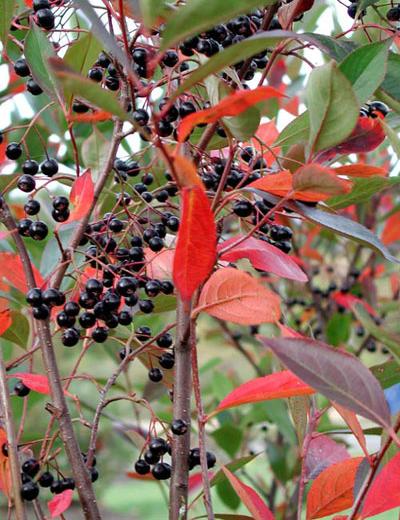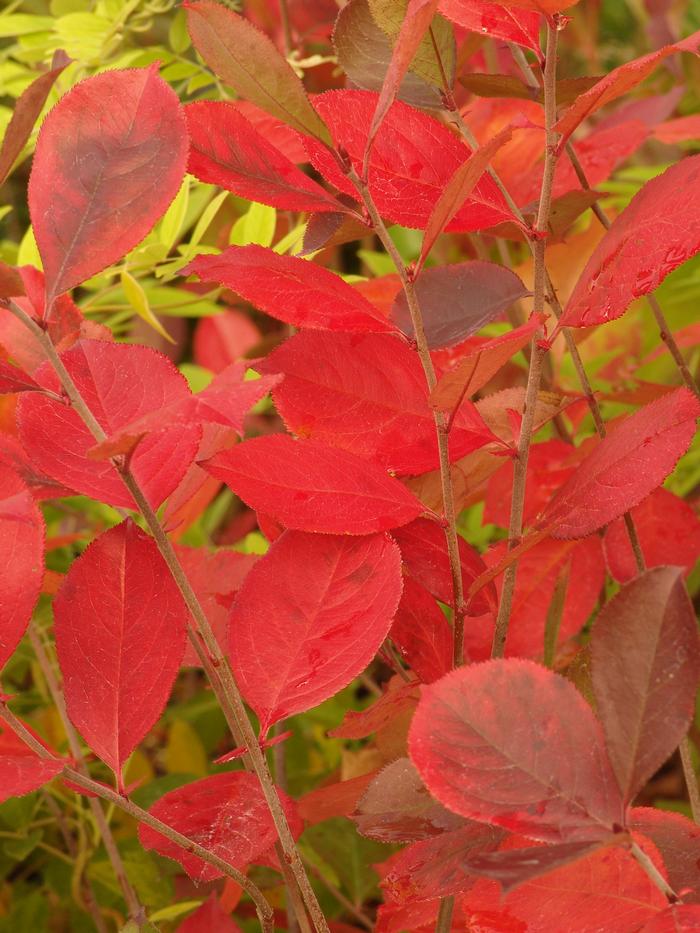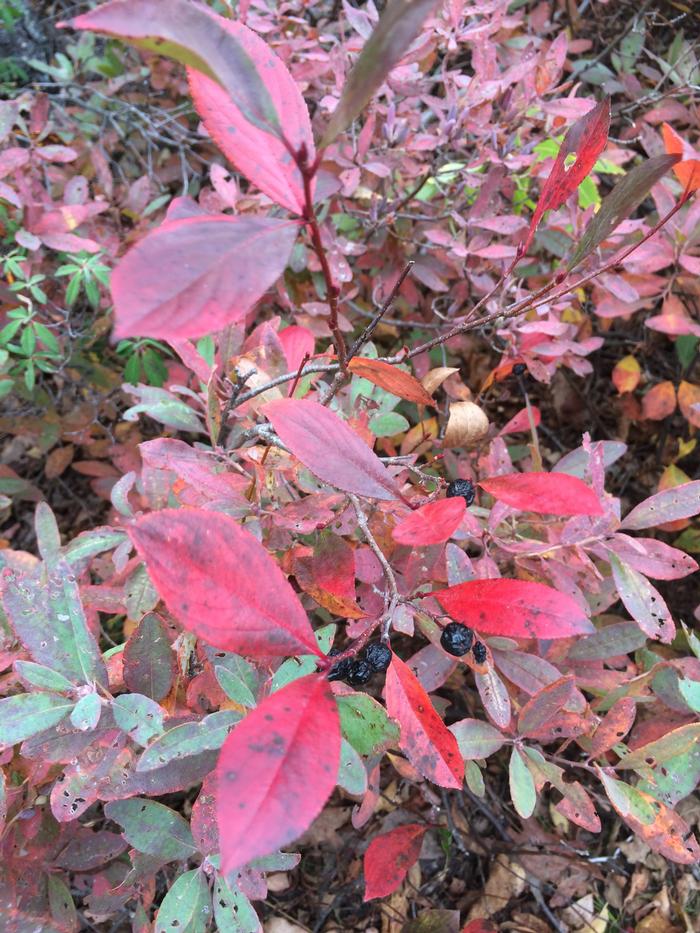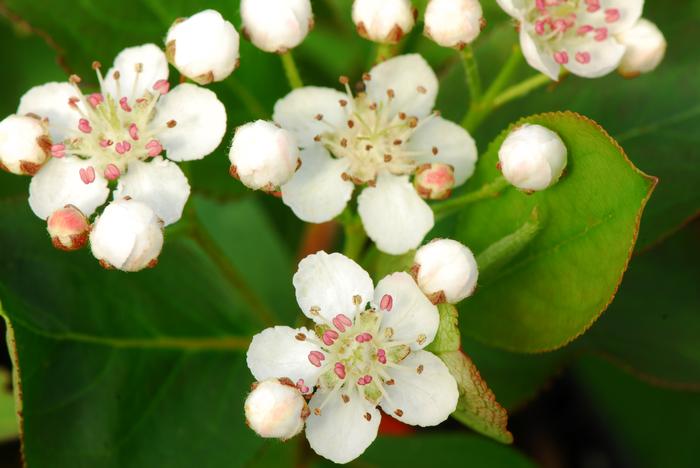General Description
Bloom Description: Small, white flowers with deep red anthers appear in late May to early June. The flowers appear in masses, making a spectacular show.
Growth Habit & Shape: A multi-stemmed shrub with small dark twigs and exfoliating bark. Aronia can spread by root suckers, forming colonies.
Soil Preferences: Aronia melanocarpa grows well in moist to semi-dry, well-draining soil. Average garden soil is fine.
Root Description: Aronia has a fibrous root system and spreads by suckers, forming thick colonies
Garden Uses: This is a wonderful shrub for a wildlife border. The flowering and fruiting characterisitics make it a nice specimen, and its growth habit makes it useful in a mixed shrub border
Best Management & Maintenance: Black chokeberry needs little attention and grows well in general. It can be pruned by cutting it to the ground periodically and allowing fresh growth to come up from the base. The best pruning method is to remove 1/3 of the largest branches over a 3 year period to keep the plant robust. In a hedgerow, the plant needs little attention. It does not like to be crowded, and prefers plenty of sun for best flowering and fall color.
Common Problems: Biotic: this plant may get leaf spot or fruit and twig blight when stressed, especially by long periods of drought.
Benefits
Ornamental Value: An underused shrub with great ornamental value, this species produces small, beautiful masses of flowers, and the showy fruits attract birds in winter. It sports bright red fall foliage when planted in adequate sun.
Wildlife Benefits: Flowers attract many pollinating insects and fruits feed numerous local songbirds in winter. Protect from deer browse!
Other Practical/Environmental Benefits: Aronia is a good wetland shrub and can stabilize soils at wetland edges, but also limits erosion in dryer areas.
Use in place of: Berberis thunbergii, Euonymus alatus
Ecology
Habitat:
Grows in bogs, wet thickets, margins of ponds and lakes, beaver ponds, woods, moist high-elevation forests, and rocky outcrops.
Response to Disturbance: Aronia melanocarpa takes at least one full growing season to establish, tolerates drought, and will readily re-grow within a few years when clear cut. It also readily tolerates occasional flooding.
Native State Distributions:
Canada: N.B., Nfld. and Labr. (Nfld.), N.S., Ont., P.E.I., Que.;
USA: AL, AR, CT, DE, D.C., FL, GA, IL, IN, IA KY, ME, MD, MA, MI, MN, MO, NH, NJ, NY, NC, OH, PA, RI, SC, TN, VT, VA, WV, WI.
Wetland indicator status: FAC
References
Return to Top




